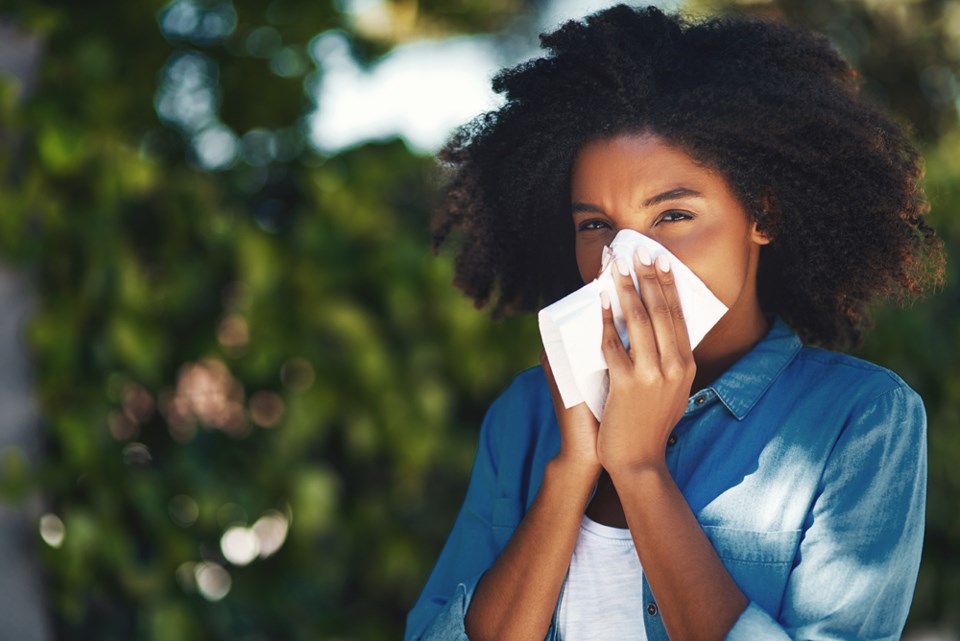Does it feel like your spring allergies are getting worse and lasting longer year over year?
Well, they likely are.
says there is more pollen in the air due to warmer temperatures caused by climate change.
The day The Chief talked to her on April 14, 麻豆社国产was the hot spot in Canada at 26°C, breaking a record of 20.6 °C set in 1965, according to local meteorologist Jason Ross.
With it becoming warmer earlier in the year, plants and flowers release their pollen grains earlier, causing pollen and allergy season to be extended, Sierra-Heredia said.
"While plants are making the most of these warmer environmental conditions during the spring to summer periods and even early fall, the humans who have allergies are constantly inhaling pollen grains and their bodies are treating them as threats," she said, in a news release.
But how do we know that there's more pollen?
"Aside from anecdotal [evidence] from talking to other allergy sufferers, we have very detailed records of the pollen counts — how many grains of pollen are in the air — every day of the year," she said, adding
"There is pollen for more days during the year, and there are more grains of pollen floating in the air. And these increases are linked, associated, with increasing temperatures and CO2."
, according to data
Sierra-Heredi said that while it is good for our mental health to have more greenery for longer, it means more days with symptoms for some allergy sufferers.
And there can be unexpected knock-off effects that result from these changes in nature.
"In general, we know that with the delicate balance of nature, every time it is altered, everything kind of moves around," she said.
An example from Sierra-Heredi's homeland of Mexico is what is happening with the agave plant that tequila is made from, which is pollinated by a bat.
"Because of climate change, the locations where this plant and bat live are not overlapping that much anymore," she said, noting many people depend on tequila production for their livelihood.
"The plant that depends on these bats — these flying nocturnal pollinators — is being disrupted."
If we don't mitigate climate change, the warming will continue, and there will be a cumulative impact, she said.
Impacts can be expected from other plants and animals that are adapting to warmer climes.
If we don't get a handle on climate change, things will just get worse, she said.
"With this warming, we will have more pollen grains in the air for longer periods," she said.
And the impacts of climate change are cumulative.
"It is absolutely concerning... The changes we are seeing pretty much at the same time are the climate crisis and the increases in air pollution and pollen."
TipsSierra-Heredi offered some practical advice for allergy sufferers:
*Wear your COVID-19 mask, which can help block out some of the pollen;
*As soon as you get home, take off your mask and wash or dispose of it properly;
*Take off your jacket;
*If you have been outside for a while, have a shower to get the pollen out of your hair;
*Keep the lines of communication open with health care providers. Share your concerns. There might be medications that can help.
Allergies, COVID or asthma?
With worry about COVID-19 transmission at an all-time high right now, it can be concerning to wake up with similar symptoms from allergies.
"There are some clear distinctions between allergies, COVID, and asthma," Sierra-Heredi said.
"The key ones that would concern me are fever, chills and body aches; loss of taste or smell," she said. "Sneezing, itchy watery eyes are much more linked to allergies... The dry cough of asthma, it might also be a symptom of COVID, so it needs to be much more monitored. We think that it is more asthma-related."




